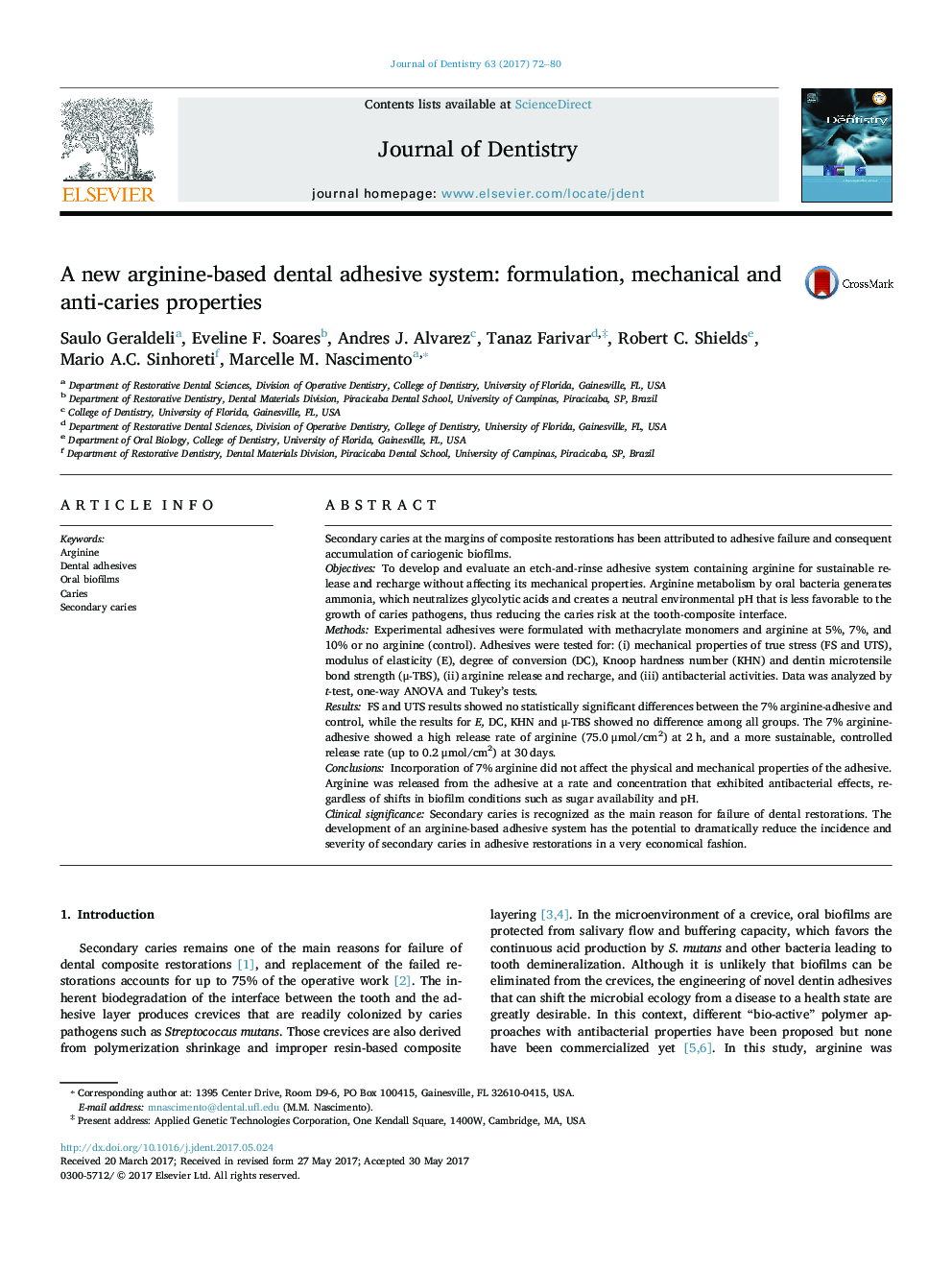| کد مقاله | کد نشریه | سال انتشار | مقاله انگلیسی | نسخه تمام متن |
|---|---|---|---|---|
| 5640569 | 1585466 | 2017 | 9 صفحه PDF | دانلود رایگان |
Secondary caries at the margins of composite restorations has been attributed to adhesive failure and consequent accumulation of cariogenic biofilms.ObjectivesTo develop and evaluate an etch-and-rinse adhesive system containing arginine for sustainable release and recharge without affecting its mechanical properties. Arginine metabolism by oral bacteria generates ammonia, which neutralizes glycolytic acids and creates a neutral environmental pH that is less favorable to the growth of caries pathogens, thus reducing the caries risk at the tooth-composite interface.MethodsExperimental adhesives were formulated with methacrylate monomers and arginine at 5%, 7%, and 10% or no arginine (control). Adhesives were tested for: (i) mechanical properties of true stress (FS and UTS), modulus of elasticity (E), degree of conversion (DC), Knoop hardness number (KHN) and dentin microtensile bond strength (μ-TBS), (ii) arginine release and recharge, and (iii) antibacterial activities. Data was analyzed by t-test, one-way ANOVA and Tukey's tests.ResultsFS and UTS results showed no statistically significant differences between the 7% arginine-adhesive and control, while the results for E, DC, KHN and μ-TBS showed no difference among all groups. The 7% arginine-adhesive showed a high release rate of arginine (75.0 μmol/cm2) at 2 h, and a more sustainable, controlled release rate (up to 0.2 μmol/cm2) at 30 days.ConclusionsIncorporation of 7% arginine did not affect the physical and mechanical properties of the adhesive. Arginine was released from the adhesive at a rate and concentration that exhibited antibacterial effects, regardless of shifts in biofilm conditions such as sugar availability and pH.Clinical significanceSecondary caries is recognized as the main reason for failure of dental restorations. The development of an arginine-based adhesive system has the potential to dramatically reduce the incidence and severity of secondary caries in adhesive restorations in a very economical fashion.
Journal: Journal of Dentistry - Volume 63, August 2017, Pages 72-80
